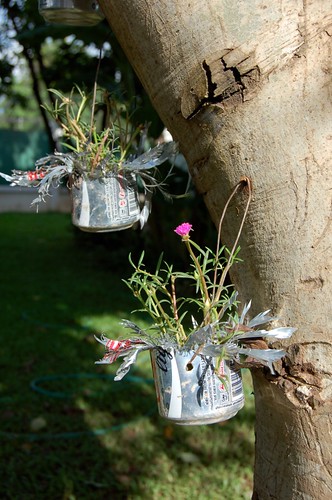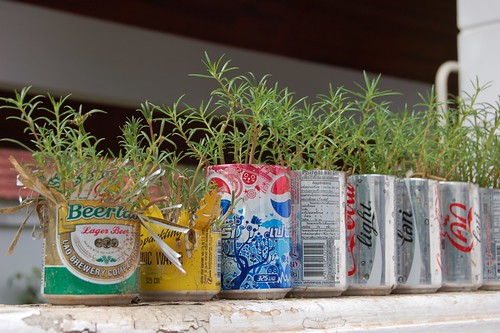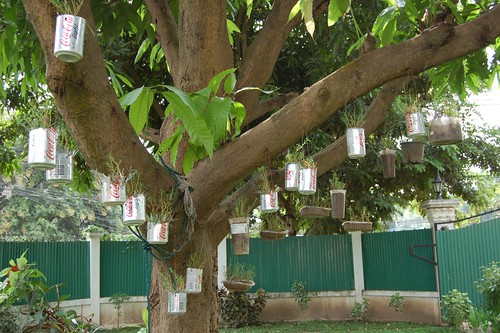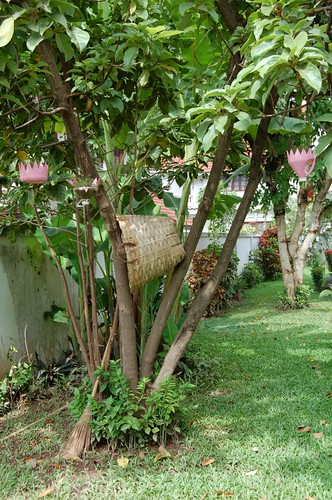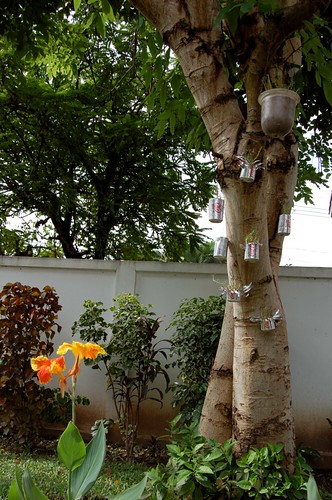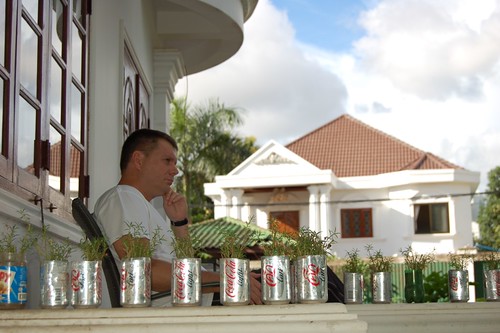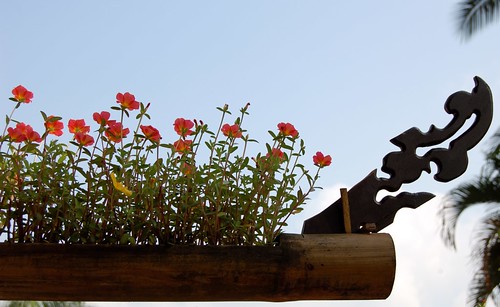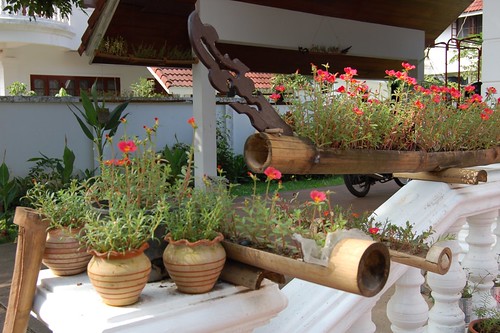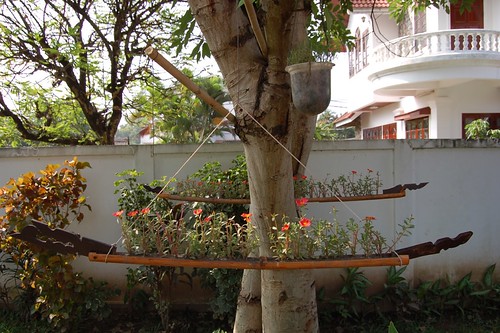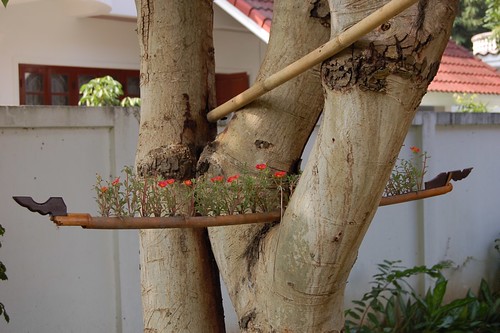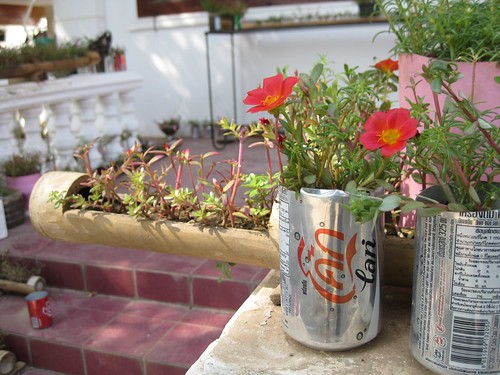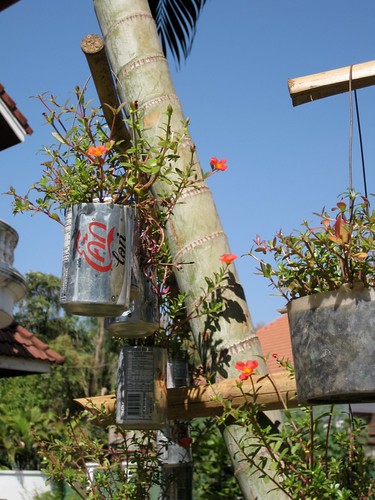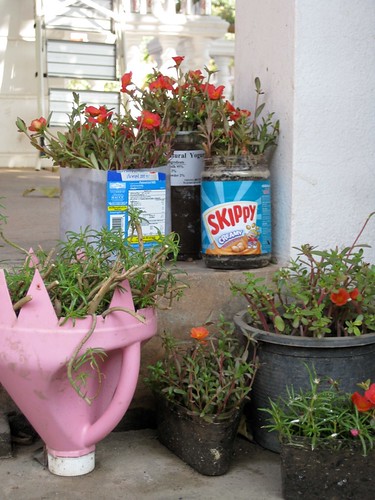Most people we know in Vientiane employ a night guard who doubles as a gardener. It seems excessive until you hear the stories of home burglaries. Or until you look out at your jungle of a yard that you have no time to maintain.
So for $120 a month, we employ Beng. We hired him back in October after an unpleasant guilt-trip of an experience with our first guard, Ae. Beng comes over in the early evening, spends the night in the adjoining guardhouse (a small bedroom and bathroom) and leaves around 7 a.m. In the beginning, he kept fairly strict hours and we kept a close eye on him. However, we’ve all loosened up. Beng comes and goes as he pleases now, often popping by at any time of day to work in the yard or just take a shower.
We don’t know much about Beng. We’ve met his diminutive wife and their sweet 3-year-old son. We know Beng’s dad works as a handyman for our landlady, and we know his mother-in-law runs a market stall. And that’s about it.
I don’t speak enough Lao to get much deeper than “thank you for cleaning my bicycle” or “the garden looks beautiful.” And Beng doesn’t speak enough English to say much more than “hello.” He tells me in Lao when he needs money to buy a new broom (made from sticks), big woven baskets (used as outdoor trash cans, which slowly decompose until they become part of the trash), gas for the weed-eater (which he uses to mow the grass) or other supplies.
Despite the language barrier, I get the feeling Beng is an artist at heart. When I stick my head out the door to say “good night” before heading to bed, I often see Beng sketching by the light of the carport. Using colored pencils I gave to his little boy, he draws temples and other religious scenes and then tapes his artwork up in the guardhouse.
Lately, Beng has put his talent to work in the yard. He salvages containers from our garbage and uses them to plant flower clippings. It started with a little garden of Diet Coke cans lining the railing of our front porch. Now the mango tree is strung with more Diet Coke cans, as well as yogurt containers and plastic bowls from restaurant deliveries. A smaller tree by the gate features pink fabric softener bottles, the serrated edges alternately bent up and down. More Diet Coke cans embellish the dok khoun (golden rain) tree, some with the aluminum cut in thin vertical strips and splayed out at various angles. The display on our front porch has grown beyond the original cans to include containers that formerly held peanut butter, tuna, floor cleaner, restaurant take-away, shampoo, Beer Lao, Pepsi, Sprite and tonic water. A few real flowerpots have also appeared.
In addition to his whimsical container garden, Beng has planted hundreds of cuttings along the perimeter wall and driveway, pruned back the trees and coaxed some dying bushes back to life. Our banana tree has doubled in height since he began nurturing it. Tony and I are stunned at how fast plants grow here.
We love it all, but there’s something about the recycled cans, tins, bottles and tubs that makes us particularly happy. I wonder whether Beng creates his living art with a deeper purpose – to comment on the environmental impact packaged food and beverages are having in this simple country, where street food used to be sold in folded banana leaves and now comes in plastic bags – or whether the garden simply offers something to fill those long, dark, boring hours when the rest of the village sleeps.
